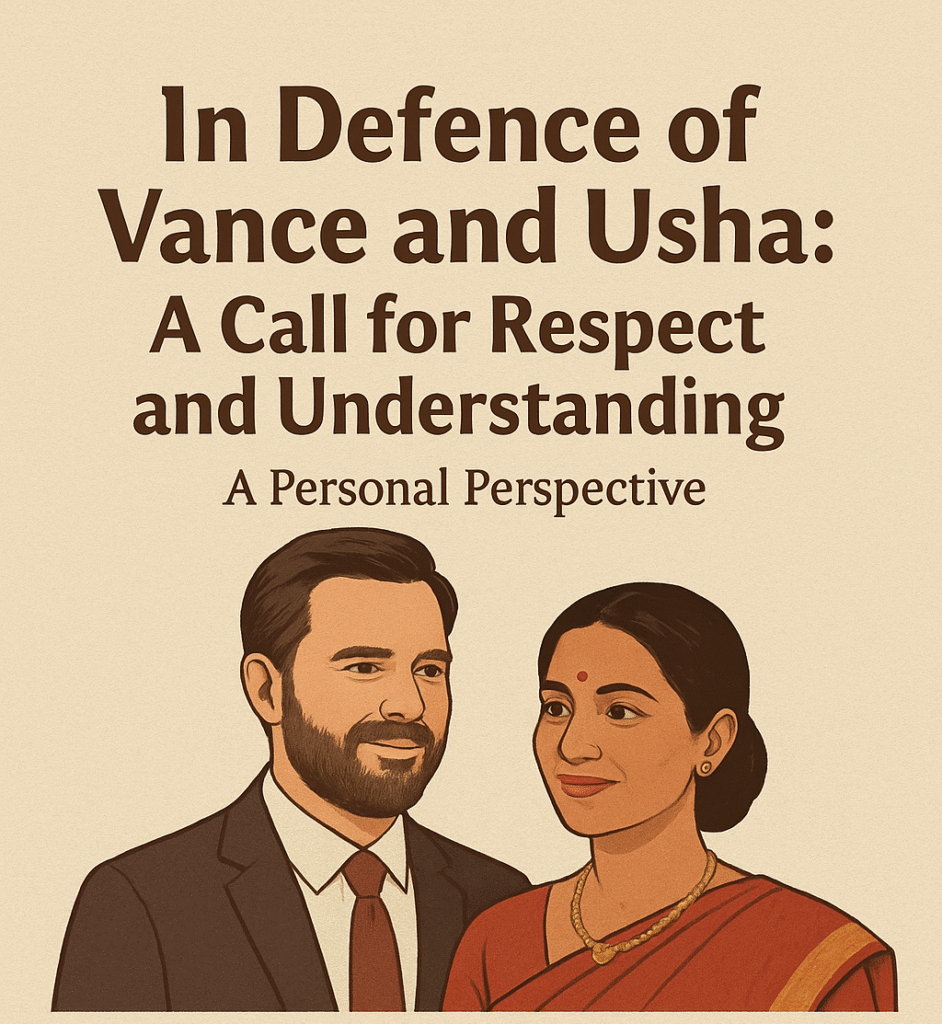
A Personal Perspective
First of all, I want to clarify that I am not a supporter of Vice President J.D. Vance, nor do I identify as a Republican or Democrat. I am an Independent who speaks out on what I believe is right or wrong, without bowing to political affiliation or partisan bias.
This article is not about politics—it’s about fairness, respect, and mutual understanding within interfaith relationships.
Vance’s Respect for Usha’s Faith
I want to assert that Vance has accepted and respected Usha’s Hinduism throughout their years of marriage. Despite differences in belief, he has never pressured her to abandon her faith.
He may hope that, one day, she will recognize the same spiritual values he has found in Christianity—but what’s essential here is that he believes in free will. That belief deserves recognition. Respecting someone’s right to choose their faith is one of the purest expressions of love and personal freedom.
Faith, Marriage, and Mutual Respect
If you marry a Christian woman, wouldn’t you hope she would participate in your traditions? Likewise, if you marry someone who is Hindu, Buddhist, Jewish, or Muslim, wouldn’t you want them to join in your celebrations and perhaps share your spiritual interests?
This is not about conversion—it’s about connection. Many couples cherish the opportunity to share in each other’s beliefs, rituals, and cultural heritage. Mutual respect, not uniformity, is what strengthens such relationships.
Encouraging Balance and Understanding
In the same way that Vance respects Usha’s faith, I hope Usha can express her desire for Vance to appreciate the principles within Hinduism. That’s the essence of a balanced partnership—each partner learning from, valuing, and uplifting the other’s worldview.
This does not mean either one should convert. It simply invites a spirit of dialogue and empathy that can calm critics who are quick to judge interfaith dynamics.
Faith and Free Will: The Common Ground
At the heart of this discussion lies the principle of free will—a value shared by both Hinduism and Christianity. Each faith teaches that belief should be personal and voluntary, not imposed. By respecting this principle, Vance and Usha exemplify how love can transcend religious differences while maintaining individual integrity.
Conclusion: A Model of Interfaith Harmony
Vance and Usha’s marriage stands as a reminder that interfaith relationships can thrive when built on mutual respect, understanding, and open-hearted communication. Instead of criticism, we should celebrate the courage it takes to navigate faith differences with grace and respect.
May their example inspire more couples to embrace interfaith dialogue, honor each other’s traditions, and foster unity through diversity.
External Links:
Video References:
Dr. Ghouse is the President and founder of the Center for Pluralism and director of the World Muslim Congress. He is an Interfaith Wedding Officiant for InterfaithMarriages.org and a Muslim Wedding Officiant. He is a Muslim, Pluralist, activist, speaker, author, and social scientist. More on Google

